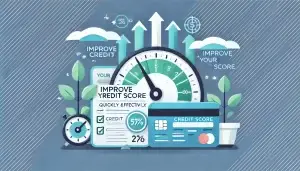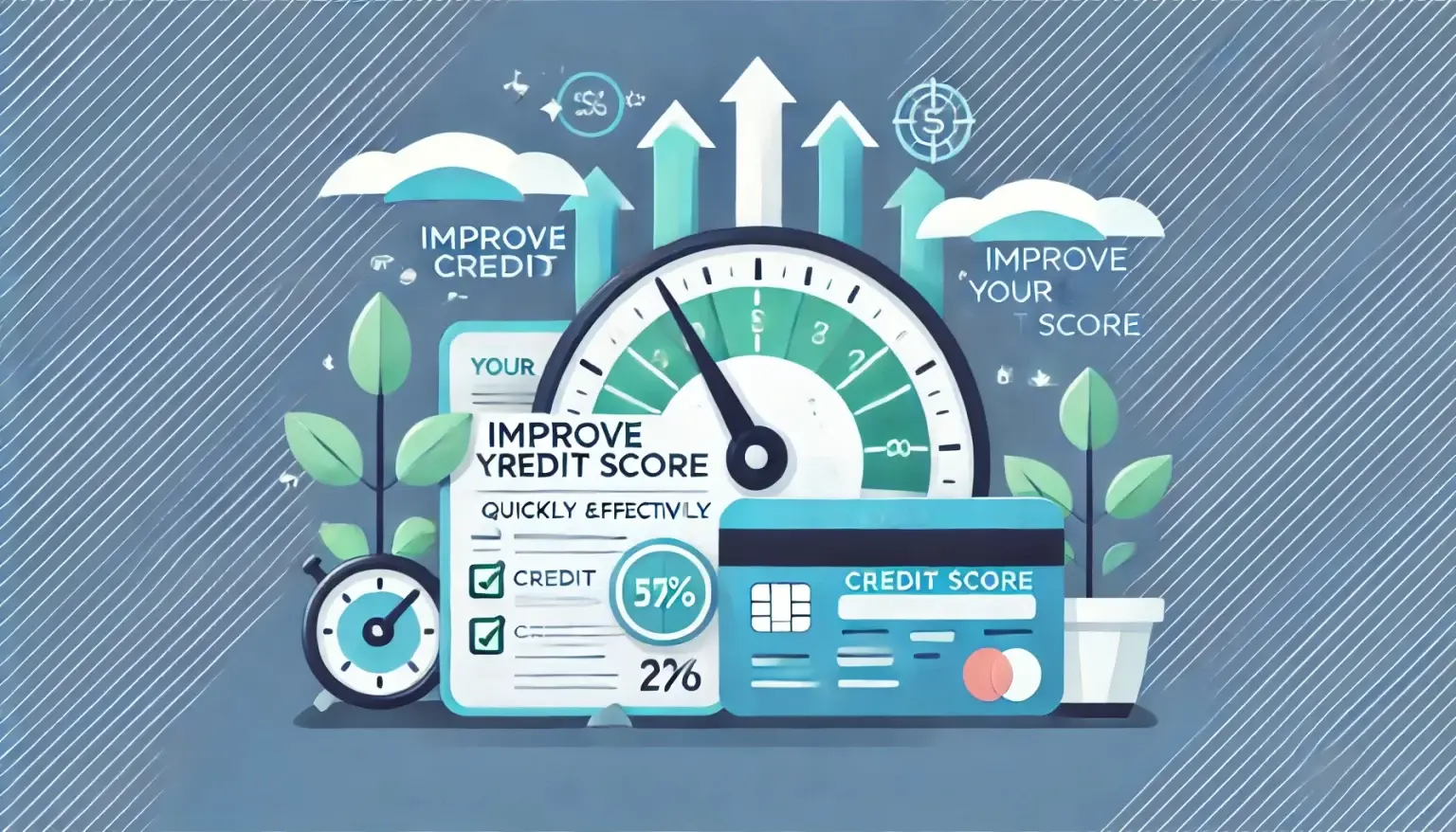A good credit score is essential for accessing favorable loan terms, securing rental agreements, and even landing certain jobs. Whether you’re looking to boost your score to qualify for a mortgage or simply want to improve your financial health, there are several strategies you can use to enhance your credit score quickly and effectively. This guide will walk you through actionable steps to improve your credit score, helping you achieve your financial goals.
1. Understand What Impacts Your Credit Score
Before you start working on your credit score, it’s important to understand the factors that influence it. The most common credit scoring model, FICO, considers the following components:
• Payment History (35%): Your history of on-time payments is the most significant factor. Late payments, collections, and bankruptcies negatively affect your score.
• Credit Utilization (30%): This measures how much of your available credit you’re using. High utilization rates can lower your score.
• Length of Credit History (15%): The longer your credit history, the better. This includes the age of your oldest account, the age of your newest account, and the average age of all your accounts.
• New Credit (10%): Opening several new accounts in a short period can hurt your score, as it suggests higher risk.
• Credit Mix (10%): Having a variety of credit types (e.g., credit cards, installment loans, mortgages) can positively impact your score.
2. Pay Your Bills on Time
Your payment history is the most critical factor affecting your credit score. Late payments can stay on your credit report for up to seven years, so it’s crucial to make timely payments. Consider setting up automatic payments or calendar reminders to ensure you never miss a due date.
3. Reduce Your Credit Card Balances
Credit utilization, or the percentage of your available credit that you’re using, is another major factor in your credit score. Aim to keep your credit utilization below 30% across all your credit cards. If possible, pay down balances aggressively to reduce this ratio. For example, if your total credit limit is $10,000, try to keep your balances below $3,000.
4. Dispute Errors on Your Credit Report
Errors on your credit report can unfairly damage your score. Obtain a free copy of your credit report from each of the three major credit bureaus (Experian, TransUnion, and Equifax) at AnnualCreditReport.com. Review them for inaccuracies, such as incorrect account information, duplicate accounts, or fraudulent activity. Dispute any errors directly with the credit bureaus to have them corrected or removed.
5. Become an Authorized User
If you have a trusted friend or family member with a good credit history, consider asking them to add you as an authorized user on one of their credit cards. As an authorized user, the account’s history is added to your credit report, which can boost your score—especially if the account has a low balance and a history of on-time payments.
6. Limit Hard Inquiries
Hard inquiries occur when a lender checks your credit report as part of a credit application. Multiple hard inquiries in a short time can lower your score, so it’s wise to limit new credit applications. Instead, focus on maintaining your existing accounts and improving your credit management.
7. Diversify Your Credit Mix
Having a variety of credit types—such as credit cards, auto loans, and mortgages—can positively impact your credit score. If you only have credit cards, consider adding a different type of credit, like a personal loan or a credit-builder loan, to diversify your credit profile.
8. Keep Old Accounts Open
The length of your credit history matters, so keep your oldest accounts open even if you no longer use them regularly. Closing old accounts can shorten your credit history and increase your credit utilization ratio if you have balances on other cards.
9. Pay More Than the Minimum Payment
Whenever possible, pay more than the minimum required payment on your credit cards and loans. Paying extra reduces your principal balance faster, lowers your credit utilization, and saves you money on interest, all of which can positively impact your credit score.
10. Settle Outstanding Debts and Collections
Unpaid debts and collections can significantly harm your credit score. Contact creditors to negotiate settlements or set up payment plans to resolve these accounts. Once settled, ask the creditor to update your account status to “paid” or “settled,” which can improve your score.
11. Use a Credit Monitoring Service
Credit monitoring services can help you stay on top of changes to your credit report, alert you to potential fraud, and provide tips on improving your score. Some credit card companies offer free credit monitoring as a perk for their customers.
12. Consider a Secured Credit Card
If you’re struggling to qualify for traditional credit cards, consider applying for a secured credit card. Secured cards require a cash deposit as collateral, which reduces the lender’s risk. Use the card responsibly, and your on-time payments will be reported to the credit bureaus, helping to build your credit history.
Conclusion
Improving your credit score takes time, but by implementing these strategies, you can see progress more quickly than you might expect. Focus on paying your bills on time, reducing your credit utilization, and correcting any errors on your credit report. With patience and persistence, you can boost your credit score, opening the door to better financial opportunities in the future.



